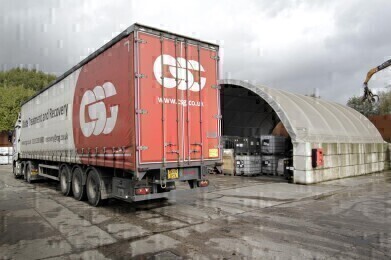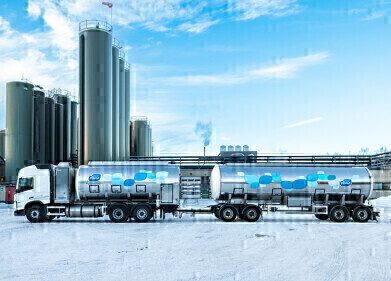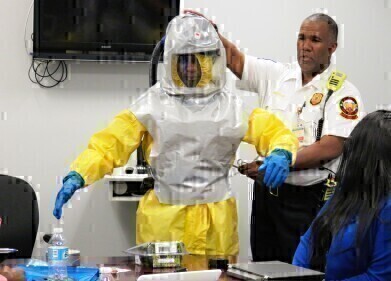-
 CSG's facility in Blackburn
CSG's facility in Blackburn
Hazardous Waste
Insufficient hazardous waste incinerators impede UK industrial growth
Jun 29 2023
A critical shortage of hazardous waste incinerators in the UK is placing significant strain on businesses and has the potential to impede the country's economic growth. Phil Manley, representing prominent waste management company CSG, warns that if European nations refuse to accept the UK's hazardous waste, it could bring British industries to a grinding halt.
Currently, the UK only possesses two major hazardous waste incinerators, located in Southampton and Ellesmere Port, which were established approximately 50 years ago. However, due to high demand, the waiting lists for both facilities are extensive. Consequently, many businesses resort to shipping their hazardous waste abroad, primarily to countries like the Netherlands, Germany, Spain, and France.
While exporting waste to Europe may serve as a temporary solution, Phil highlights the precarious position it places British businesses in. He explains that although it is currently legal and acceptable for other countries to receive the waste and convert it into energy, the practice is not sustainable in the long term. Phil expresses concern that the UK relies on the willingness of other governments to accept its hazardous waste. If this support were to cease abruptly, a significant portion of UK industry would be severely impacted, resulting in a precarious situation for the country.
The primary obstacle hindering the construction of much-needed hazardous waste incinerators is public perception. Phil notes the strong resistance within the UK population to incinerators that convert hazardous waste into energy. Despite stringent emissions controls and high standards, obtaining planning permission and environmental permits is challenging due to public opposition. Businesses hesitate to invest £200 million in an incinerator if they are uncertain about receiving the necessary permits.
Shipping hazardous waste overseas adds unnecessary costs to UK businesses that could be avoided if adequate facilities were available domestically. These additional expenses make it difficult for UK manufacturers to compete in terms of cost with other countries that possess their own hazardous waste incinerators. Consequently, the UK's limited waste disposal capacity becomes a hindrance to the desired growth of the economy, particularly in the manufacturing sector.
One potential option for UK businesses is to extract the hazardous elements from expired or defective products, thereby reducing the amount of waste requiring shipment abroad and freeing up some capacity. CSG has assisted companies in this process by manually deconstructing items into recyclable parts, such as separating an electric toothbrush into its various components for separate recycling.
The impact of the coronavirus pandemic has led to a significant influx of hand gel waste, which CSG manages by separating the liquid gel from its container. The packaging is recycled within the UK, while the gel itself is blended for fuel or solvent reclamation as an alternative to incineration. Phil emphasizes the importance of exploring new methods to separate materials for reuse instead of resorting to incineration. However, for many waste streams, waste-to-energy incineration remains the only viable option.
Manufacturers must prioritise designing products that are easily manageable after use. For instance, hand gel packaging often comprises two different types of plastic that are challenging to separate. With pressure from the government and consumers to minimize landfill waste, manufacturers may face limited options unless action is taken to address the lack of energy-from-waste capacity for industrial waste.
CSG's comprehensive ADR transportation network enables efficient nationwide collection and transportation of drums, packages, bulk liquids, and intermediate bulk containers. Their strategically positioned waste transfer, treatment, and recovery centers across the UK ensure safe and compliant handling of waste, while their team of consultants work collaboratively to develop innovative and cost-effective solutions.
In conclusion, the scarcity of hazardous waste incinerators in the UK is hampering industrial growth. To ensure sustainable and competitive operations, it is crucial to address the limitations on waste disposal capacity.
Events
IWA World Water Congress & Exhibition
Aug 11 2024 Toronto, Canada
Aug 25 2024 Stockholm, Sweden and online
Sep 03 2024 Mexico City, Mexico
Sep 03 2024 Mexico City, Mexico
Sep 03 2024 San Diego, CA, USA













